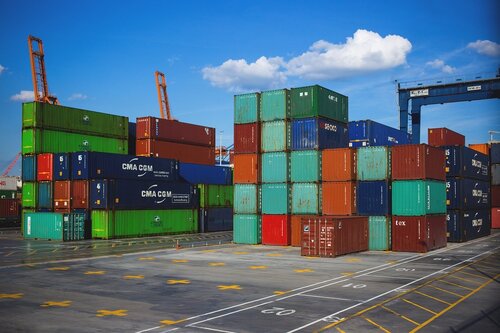Les aides publiques à disposition des entreprises exportatrices
D’après Christophe Lecourtier, directeur général de Business France, organisme chargé d’aider les entreprises françaises à exporter et d’accompagner les investisseurs étrangers en France, l’exportation est devenue une « grande cause nationale ».
Pour soutenir le développement à l’export des entreprises françaises, plusieurs dispositifs publics ont été mis en place dès le début de la crise sanitaire.
Tout d’abord, la Team France Export, qui regroupe tous les acteurs publics de soutien à l’exportation (régions, État, Business France, Chambres de commerce et d’industrie et BPI France) a créé les Chèques Relance Export à destination des PME et des ETI.
Ces chèques permettent de prendre en charge 50 % des dépenses liées aux prestations d’accompagnement à l’international, plus précisément les dépenses commerciales et de prospection. Un dispositif qui peut être combiné avec des aides régionales, pour une prise en charge allant jusqu’à 80 % des dépenses.
Par ailleurs, l’assurance prospection fournie par Bpifrance, qui apporte un soutien en trésorerie pour la prospection des marchés étrangers, a été renforcée et permet désormais de soutenir de plus petites entreprises avec des projets plus modestes. Les assurances prospection en cours d’exécution ont également été prolongées d’un an.
Le Volontariat International en Entreprise (VIE), qui consiste à envoyer un jeune âgé de 18 à 28 ans en mission à l’étranger pendant 6 mois à 2 ans, fait aussi l’objet d’une attention spécifique : les pouvoirs publics ont ainsi mis en place des Chèques Relance VIE d’un montant de 5000 euros pour créer en tout 3000 nouvelles missions VIE.
Enfin, Business France a créé des vitrines numériques faisant office de salons professionnels digitaux dans 3 secteurs dans lesquels la France s’illustre à l’export :
- les vins et spiritueux,
- les cosmétiques
- et l’agroalimentaire.
Un faible recul du nombre d’entreprises exportatrices
Malgré les difficultés que la crise sanitaire fait peser sur l’export depuis presque un an, le nombre d’entreprises exportatrices n’a que peu diminué en 2020. 128 000 entreprises françaises ont continué à vendre leurs produits à l’international, et le niveau d’avant-crise devrait selon Christophe Lecourtier être atteint dès le deuxième trimestre 2021.
Toutefois, le taux de change effectif de l’euro a augmenté de 6 % depuis le début de la crise sanitaire, ce qui pourrait mettre à mal la compétitivité des entreprises françaises à l’international.
De plus, comme le déclarait Christophe Lecourtier au micro d’Europe 1 le 5 février 2021, « on est touché dans les fleurons de notre exportation » que sont l’aéronautique et l’automobile. Les exportations dans le secteur de l’aéronautique ont ainsi reculé de 30 milliards d’euros en 2020. Une situation qui semble s’installer dans la durée, Airbus n’ayant reçu aucune commande au mois de janvier 2021.
Malgré la volonté des pouvoirs publics, certains domaines de l’export mettront donc davantage de temps à se relever de la crise sanitaire.
